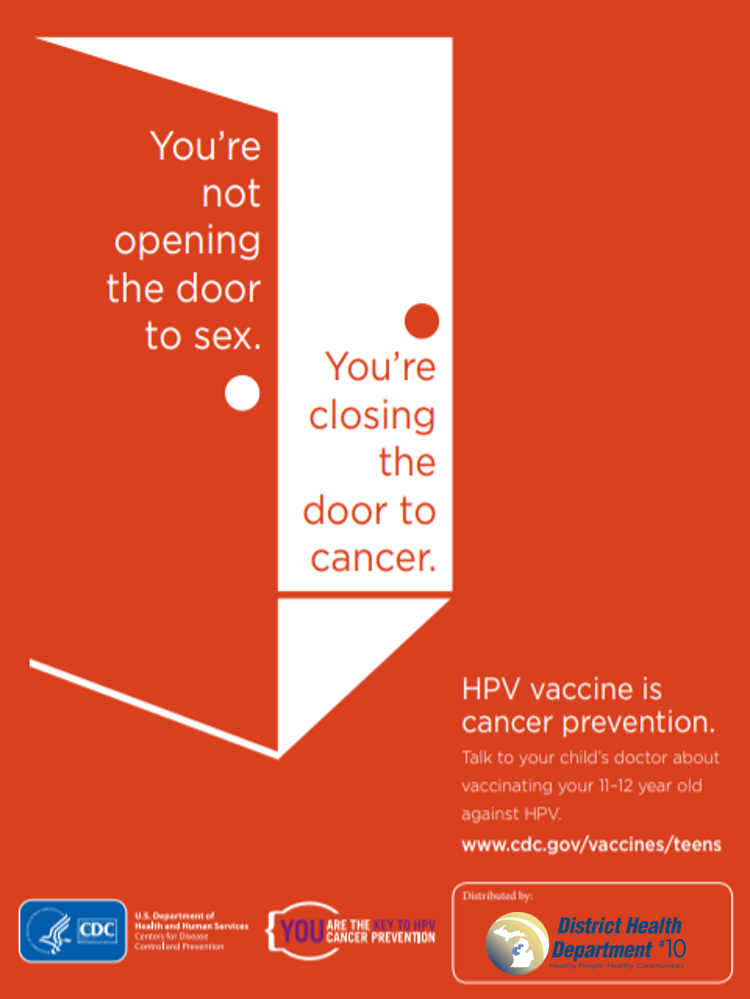What is HPV?
HPV stands for human papilloma virus. HPVs are a group of more than 150 related viruses. Each HPV virus in the group is given a number, and is called an HPV type (for instance, HPV-16).
HPVs are called papillomaviruses because some of the HPV types cause warts or papillomas, which are non-cancerous tumors. But some types of HPV are known for causing cancer. HPV causes most cases of cervical cancer, as well as many vaginal, vulvar, anal, penile, and oropharyngeal cancers (cancers of the throat and tongue).
Almost every person who is sexually active will get HPV at some time in their life without HPV vaccination. About 14 million Americans, including teens, become infected with HPV each year. While most HPV infections will go away on their own, infections that don’t go away can cause certain types of cancer.
Can a vaccine help prevent HPV?
Yes. According to the Centers for Disease Control and Prevention (CDC), HPV is estimated to cause nearly 35,000 cases of cancer in men and women every year in the U.S. HPV vaccination can prevent more than 32,000 of these cancers from ever developing by preventing the infections that cause those cancers. That’s the same as the average attendance for a baseball game.
What types of cancer does the HPV vaccine prevent?
HPV can cause cancers of the:
- Cervix, vagina, and vulva in women
- Penisexternal icon in men
- Anusexternal icon and back of the throat, including the base of the tongue and tonsils (oropharynx), in both women and men
Who should be vaccinated against HPV and when?
HPV vaccine produces the strongest immune response in preteens. To work best, the HPV vaccines should be given at age 11 or 12. The vaccines are given in a series of shots.
The American Cancer Society’s recommendations for HPV vaccine use:
- Routine HPV vaccination for girls and boys should be started at age 11 or 12. The vaccination series can be started as early as age 9.
- HPV vaccination is also recommended for females 13 to 26 years old and for males 13 to 21 years old who have not started the vaccines, or who have started but not completed the series. Males 22 to 26 years old may also be vaccinated.*
- HPV vaccination is also recommended through age 26 for men who have sex with men and for people with weakened immune systems (including people with HIV infection), if they have not previously been vaccinated.
*For people 22 to 26 years old who have not started the vaccines, or who have started but not completed the series, it’s important to know that vaccination at older ages is less effective in lowering cancer risk.
Why should the vaccines be given to pre-teens?
The vaccines work best at this age. Research shows that younger people have a better immune response to the vaccine than those in their late teens and early 20s. And, the vaccines will prevent the covered types of HPV only if they are given before exposure to the virus.
This is also an age when other vaccinations are given, and when children are likely to still be getting regular medical check-ups.
Information adapted from American Cancer Society.
Quick Links

